 August 31, 2017 John E. Ross, KD8IDJ, Editor
| |||||||
ARRL Headquarters is Closed for Labor Day: ARRL Headquarters will be closed on Labor Day, September 4. There will be no ARRL bulletin or code practice transmissions on Labor Day. ARRL Headquarters will reopen on Tuesday, September 5, at 8 AM ET. We wish everyone a festive and safe holiday! Amateur Radio Volunteers Assisting Where Needed in Harvey Response Amateur Radio Emergency Service (ARES®) volunteers have been pitching in to support communication at some Red Cross shelters in south Texas in the ongoing aftermath of catastrophic and unprecedented flooding resulting from Hurricane Harvey, now a Tropical Depression. ARES members also have been serving as net control liaisons to the Harris County Office of Emergency Management (OEM). At mid-week, some 3 dozen volunteers were assisting at shelters. Another dozen were on tap to serve as OEM liaisons. ARRL Emergency Preparedness Manager Mike Corey, KI1U, said the Red Cross is in need of Red Cross-trained shelter managers and volunteer management specialists. Anyone interested should contact him.
A variety of emergency, health-and-welfare, traffic, and tactical nets in south Texas have been active on HF at various times of the day as well as on a wide array of VHF and UHF repeaters, which remain available as needed. The Salvation Team Emergency Radio Network (SATERN) has been convening on 14.265 MHz, while the Military Auxiliary Radio Service (MARS) has been using the 5.330.5 (USB) MHz interoperability channel on 60 meters. On August 31, the National Hurricane Center reported that flooding rains were continuing across far eastern Texas and western Louisiana, with heavy rainfall expected to spread northeastward through the lower Mississippi Valley and into the Tennessee Valley over the next day or two. ARES volunteers are on standby in Louisiana. "During the storm response, all Amateur Radio operators -- and perhaps especially those involved in contest activity -- are advised to listen first and respect any frequencies in use for emergency response communication," Corey said. He cited the SATERN Net on 14.265 MHz and the South Texas Traffic Emergency and Health and Welfare nets on 7.285, 7.290, 3.873, and 3.935 MHz. Digital emergency and health and welfare frequencies are 3.5925 and 7.095 MHz. Earlier this week, ARES team members were advised that the impact to the region's communications infrastructure had been relatively minimal, considering the strength of the storm and the magnitude of the flooding. The storm did ravage cellular service in some Texas counties, however, especially Aransas (84%) and Refugio (73%) counties, the FCC reported. Overall, however, the FCC deemed the cellular system 95% functional.
Urich spent more than 40 hours alternating shifts at the Harris County Emergency Operations Center (EOC). Urich said the area's extensive system of repeaters makes it possible for local radio amateurs to serve as "another set of eyes and ears" in spotting and reporting problems that may require official attention. The Hurricane Watch Net (HWN) suspended operations for Hurricane Harvey on August 26 after 51.5 continuous hours of activation. The VoIP Hurricane Net, and WX4NHC, the Amateur Radio station at the NHC in Miami, also activated as Harvey approached landfall in Texas as a Category 4 hurricane. The VoIP Hurricane Net has been informally monitoring EchoLink 7203, IRLP 9219, and AllStar *33007203 for requests from the affected area at the request of Humanity Road, said Lloyd Colston, KC5FM.
He said a station checked in via EchoLink to request the rescue of a grandmother and children. "That request was relayed to the United States Coast Guard Houston," Colston told ARRL. He said hams in the affected region needing to relay rescue needs should first call 911, then their local emergency operations center, and, if those aren't available, then the US Coast Guard -- in that order. He also said individuals in the flood zone are reporting cellular telephone degradation. ARRL South Texas Section Manager Lee Cooper, W5LHC, told ARRL on Monday that the disaster would remain in the response phase for several days, although needs may change later in the response phase or when it transitions to the recovery phase. ARRL South Texas SEC Jeff Walter, KE5FGA, said ARES members could participate in any nets related to the storm response from home.
"Harris County and the City of Houston have issued a shelter-in-place order," Walter pointed out over the past weekend. "The local region is paralyzed. Resources are stretched to accommodate all calls for assistance. Take care of your family first, then if you are able to help in the recovery phase, contact your local Emergency Coordinator or District Emergency Coordinator for instruction on what to do. Do not show up without approval from your local EC." As of August 31, some 195,000 customers were without power in Texas. American Red Cross shelters were reporting more than 34,000 occupants in Texas; more than 980,000 people have been ordered to evacuate. The Texas Emergency Operations Center is at full activation, and Governor Greg Abbott has declared a state of disaster for 50 Texas counties, while evacuation orders and advisories are in effect for eight counties and several independent communities in Louisiana, where the state EOC is fully activated. A state of emergency also exists for all Louisiana parishes in preparation for widespread flooding. Read more. Director, Vice Director Elections Set in Three ARRL Divisions ARRL members will choose between two candidates for the Vice Director's seat in the Atlantic Division, now headed by Director Tom Abernethy, W3TOM, who qualified for re-election. Running for Atlantic Division Vice Director are Riley Hollingsworth, K4ZDH, of Gettysburg, Pennsylvania, and Lloyd Roach, K3QNT, of Bedford, Pennsylvania. Hollingsworth served as FCC special counsel overseeing Amateur Radio enforcement.
A four-way race exists for the Vice Director's chair that Holden is vacating. The candidates are Tom Karnauskas, N0UW, of Owatonna, Minnesota; Jay Maynard, K5ZC, of Fairmont, Minnesota; Lynn Nelson, W0ND, of Minot, North Dakota, and Chris Stallkamp, KI0D, of Selby, South Dakota. Nelson is North Dakota Section Manager, while Stallkamp is South Dakota Section Manager. Midwest Division Director Rod Blocksome, K0DAS, is being challenged for re-election by Cecil Miller, WB0RIW, of Wichita, Kansas. Vice Director Art Zygielbaum, K0AIZ, is unopposed for re-election. Blocksome was appointed Midwest Division Vice Director in 2010. He will be filling the vacancy after then-Midwest Division Director Bruce Frahm, K0BJ, was elected as ARRL Second Vice President, and Blocksome, the Vice Director at the time, moved into the Director's seat. Running unopposed for new terms are Delta Division Director David Norris, K5UZ; Vice Director Ed Hudgens, WB4RHQ; Great Lakes Division Director Dale Williams, WA8EFK, and Vice Director Tom Delaney, W8WTD. The Ethics and Elections Committee established the eligibility of all candidates and declared all unopposed candidates elected for 3-year terms starting January 1, 2018. Ballots and candidates' statements for contested elections will be mailed to members of the respective divisions who are in good standing as of September 10. Completed ballots must be received by noon Eastern Time on November 17. Votes will be tallied at ARRL Headquarters, and the election results announced later that day. The Doctor Will See You Now! "Antenna Analyzers" is the topic of the latest (August 31) episode of the "ARRL The Doctor is In" podcast. Listen...and learn! Sponsored by DX Engineering, "ARRL The Doctor is In" is an informative discussion of all things technical. Listen on your computer, tablet, or smartphone -- whenever and wherever you like!
Enjoy "ARRL The Doctor is In" on Apple iTunes, or by using your iPhone or iPad podcast app (just search for "ARRL The Doctor is In"). You can also listen online at Blubrry, or at Stitcher (free registration required, or browse the site as a guest) and through the free Stitcher app for iOS, Kindle, or Android devices. If you've never listened to a podcast before, download our beginner's guide. The 2018 ARRL Calendar is Now Shipping Talking to friends. Serving your community. Chasing DX. Trying a new mode. Working a contest. Taking your radio out in the field. The 2018 ARRL Calendar features photos of exciting on-air operating activities, that we hope will inspire you to get involved, active, and on the air too! The 2018 ARRL Calendar includes:
This year, the calendar features four winners from the 2018 #ARRL Calendar Facebook Photo Contest: Bradley Bowers, KF2I; Andrey Fedorov, RW3AH; Timothy McGuire, KJ4OLI, and Jack Reed, WA7LNW. Congratulations to the winners, and thank you to everyone who participated! The 2018 ARRL Calendar is available from the ARRL Store or your ARRL Dealer. (ARRL Order No. 0734), ISBN: 978-62595-073-4, $12.95 retail). Call 860-594-0355 or, toll-free in the US, 888-277-5289; www.arrl.org/shop; [email protected]. Planned DXpeditions to Rare Entities Report Progress Don Greenbaum, N1DG, reports that the Dateline DX Association is making progress in planning its 2018 DXpedition to Baker and Howland Islands (KH1), the fourth most-wanted DXCC entity, according to Club Log's DXCC Most Wanted List. The DDXA team will operate from the Baker Island National Wildlife Refuge.
All preparations are subject to the approval of the US Fish and Wildlife Service, which administers the Baker Island National Wildlife Refuge, and the ship and dates were chosen in consultation with the agency, based on the availability of the vessel and of the USFWS "resource monitor," who will accompany the team, as well as avoidance of the cyclone season. Greenbaum said long-range propagation forecasts appear favorable on HF to Western Europe during the late-June period of planned operation. The team's 11 operators are covering half of the estimated $400,000 cost of the DXpedition, and they're seeking financial support for the rest. Greenbaum, Tom Harrell, N4XP, and Kevin Rowett, K6TD, are team co-leaders.
ARRL has granted an unspecified Colvin Award to help support the Bouvet Island DXpedition, and the Northern California DX Foundation (NCDXF) contributed $100,000. A new 160-meter vertical, designed by Nodir Tursun-Zade, EY8MM, and DX Engineering, will be used on Bouvet. The vertical is 90 feet tall, 70 feet of which is aluminum tower sections with a 20-foot "stinger" on top. DX Engineering has donated two of the verticals to the DXpedition, one as a spare. The antenna is top loaded and tuned with two base coils. It's raised using a "falling derrick." A video of the raising and testing of the vertical is available on YouTube. Team member Jim Mornar, N9TK, has been preparing the radials, putting the cut-to-length wire on spools so they're ready to install on site. The radials total 24,000 feet. With this transmitting antenna coupled with directional receiving antennas, planners feel certain 3Y0Z will be effective on Top Band. Video showing setup and testing of the vertical has been posted on YouTube. The Bouvet DXpedition is planned to take place in January 2018 and the team hopes to be on the air for 14 to 16 days. The estimated cost of the DXpedition is upward of $750,000. The DXpedition has a Facebook page.
Data modes, and especially RTTY, will be one focus of the VK9MA DXpedition, and the team says it may give JT65/JT9 and the newly popular, but still beta, FT8 a try. During their 13-day stay on the reef, team members will run four complete stations around the clock. -- Thanks to The Daily DX Maritime Mobile Operation on LF May be a First for Amateur Radio What began as a "let's-see-if-we-can-do-this" effort resulted in successful Amateur Radio contacts on 475 kHz in early August by two Canadian operators aboard the sailing vessel Hakuna Matata off the coast of British Columbia. The accomplishment may be an Amateur Radio first. Mark Mattila, VA7MM, and Toby Haynes, VE7CNF, equipped Mattila's 31-foot offshore-equipped Beneteau sloop with the gear necessary to make maritime mobile operation possible on 630 meters. The vessel already had a 46-foot mast with an insulated backstay antenna for marine and ham radio communication.
Haynes designed the overall system, and work done on the vessel prior to the sailing season facilitated the radio experiments. This included installing new batteries, a new RF ground system braid and counterpoise conductors, and an antenna for 2-meter FM communication. Before the Hakuna Matata set sail, word went out among the local 630-meter community to be listening for CF7MM/mm on 475 kHz CW. Haynes fabricated a 630-meter linear transverter for the project. Its bidirectional high-power mixer circuit that takes full RF output from an Icom IC-746PRO transceiver operating at an IF of 1.9 MHz and mixes with a local oscillator at 1.5 MHz down to 475 kHz. For receiving, signals pass in the other direction are upconverted to 1.9 MHz, with some minor signal attenuation.
Perhaps more critical were the antenna and RF grounding systems. The actual radiating element was a 38-foot long piece of #14 wire attached to the highest point on the mast. Grounding was accomplished by using the vessel's cast-steel keel and a couple of 30-foot wires near the gunwales. Tuning and matching were achieved using a loading coil and variometer, involving a total of 1,120 μH of inductance. Operation was coordinated using a South Coast 2-meter FM repeater, and the 630-meter operation was scheduled for late morning and early evening. The propagation mode was ground wave.
Contacts were made while the vessel was at anchor in Boho Bay, Silva Bay, and Winter Cove. Stations worked on CW included VE7SL on Mayne Island, VE7BDQ in Delta, VE77VV in Victoria, VE7CA in North Vancouver, and VA7JX in Campbell river. VE7SL and VE7VV also were worked on 630 meters on SSB. The "best DX" was a contact from Silva Bay with VA7JX spanning 142 kilometers (about 88 miles). Mattila and Haynes said they were impressed by the signal reports received, given the transmitter's estimated 160 mW EIRP. "Received signals from participating stations varied from S-1 to S-9 +10 dB, and copy was easy for all contacts," they said. The yet-to-be-implemented US Amateur Radio regulations governing operation on 630 meters do not permit mobile operation. ARISS Cross-Band Repeater Not Available for General Communication The cross-band FM voice repeater aboard the International Space Station (ISS) has not officially been activated for general amateur use, although some stations have reported successful contacts. The system is being used in an effort to detect telemetry from three recently deployed CubeSats.
They set up the ISS repeater as a cross-band relay between 437.050 MHz and 145.800 MHz at the last minute, because they were concerned about getting telemetry from their satellites, which might be spinning more than expected. They are hoping that the nearby receiver on the ISS might be able to capture and retransmit telemetry not being received up on the ground.
"It has been utilized very little during that time, due to concerns by the Russians that the unit might overheat," he said. When the ARISS voice repeater is active and authorized for general amateur voice contacts, the uplink is 437.800 MHz, and the downlink is 145.800 MHz. -- Thanks to ARISS and AMSAT News Service Top-Level Domain Name ".radio" Now Available The top-level domain (TLD) name ".radio" is now available to the radio industry and Amateur Radio enthusiasts, and is reserved for individuals and companies with active interest in the radio sector. The .radio TLD can be used for web and e-mail addresses and will be managed by the European Broadcasting Union (EBU) with support from other world broadcasting unions. Visit the .radio domains registration site to request a .radio domain.
One or more .radio domain name(s) can be requested during the launch period, which ends on October 31, 2017. The cost for individual radio amateurs is about $30, including tax. "The EBU believes radio stations should be the focus of this new space on the internet, and considers them our highest priority," the announcement said. "However, other categories of applications from the radio sector will also be considered during this phase."
"The TLD will be focused on content and matters specific to radio, and we want to prevent speculation and cybersquatting in this TLD; therefore, this extension will rapidly become a high-value internet space for websites, mail systems, and other internet applications," he continued. The launch process will not be first come, first served. "The .radio team will seek to optimize domain name allocation to solve contentious issues and prioritize existing radio services," the EBU announcement said. Starting in November, first come, first served rules will apply, although eligibility requirements remain the same. For more information, visit www.nic.radio. In Brief...
Getting It Right! The story, "Harvey Gains Hurricane Strength, Hurricane Watch and VoIP Hurricane Nets Activate," in the August 24 edition of The ARRL Letter, incorrectly attributed information from ARRL South Texas Section Emergency Coordinator Jeff Walter, KE5FGA. The K7RA Solar Update Tad Cook, K7RA, Seattle, reports: Average daily sunspot numbers and solar flux declined over the August 24-30 reporting week. The average daily sunspot number went from 39.9 to 33.3, while average daily solar flux declined to 81.2 from 84.6. The average planetary A index declined from 23.1 to 7.1, and average mid-latitude A index went from 18.6 to 7.4.
Predicted solar flux is 89 on August 31; 91 on September 1-2; 89 on September 3; 88 on September 4-6; 86 and 80 on September 7-8; 85 on September 9-14; 88 on September 15-18; 85 on September 19-20; 82 and 80 on September 21-22, and 78 on September 23-25. Sunspot numbers for August 24-30, 2017 were 43, 39, 35, 22, 17, 35, and 42, with a mean of 33.3. The 10.7-centimeter flux was 78.8, 80.8, 77.5, 78.2, 81.6, 84.3, and 86.9, with a mean of 81.2. Estimated planetary A indices were 11, 5, 5, 10, 4, 10, and 5, with a mean of 7.1. Estimated mid-latitude A indices were 16, 7, 5, 6, 3, 10, and 5, with a mean of 7.4. The K7RA Solar Update in The ARRL Letter is a preview of the weekly Propagation Bulletin, issued each Friday. The latest bulletin and an archive of past propagation bulletins is on the ARRL website. In Friday's bulletin, look for an updated forecast and reports from readers, including one from QST's "The World Above 50 MHz" columnist Jon Jones, N0JK, about a revival of 10-meter propagation. Send me your reports or observations. Just Ahead in Radiosport
See the ARRL Contest Calendar for more information. For in-depth reporting on Amateur Radio contesting, subscribe to The ARRL Contest Update via your ARRL member profile e-mail preferences. Upcoming ARRL Section, State, and Division Conventions
Find conventions and hamfests in your area.
. .
Subscribe to...
Free of charge to ARRL members...
Find ARRL on Facebook! Follow us on Twitter, Snapchat @ARRLHQ, and Instagram! | |||||||
.jpg)
.jpg) ARRL South Texas Public Information Officer Mike Urich, KA5CVH,
ARRL South Texas Public Information Officer Mike Urich, KA5CVH, 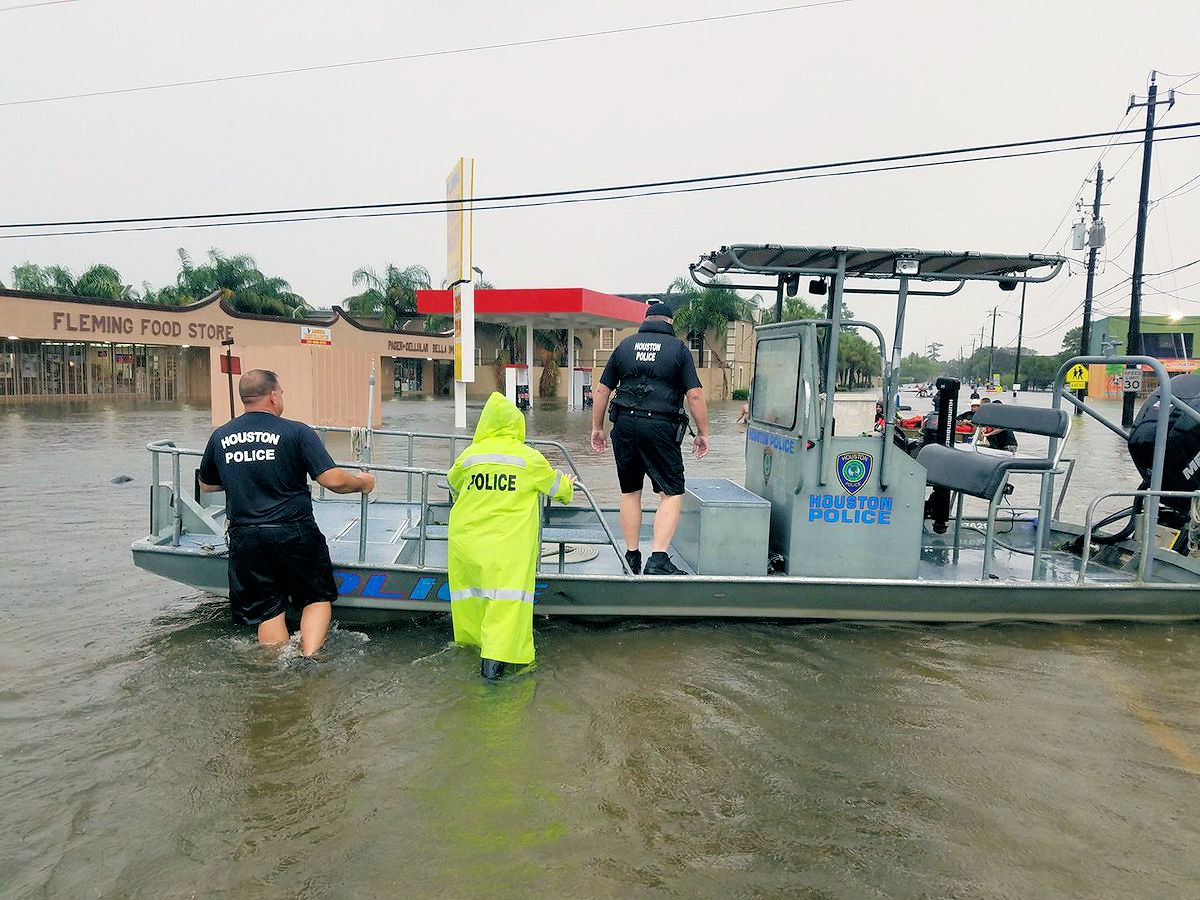
(1).png)
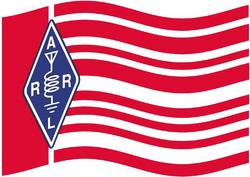 There's also a two-way race to fill the Dakota Division Director's chair being vacated by Kent Olson, KA0LDG, who has decided not to run for another term. Running to succeed Olson are Matt Holden, K0BBC, of Bloomington, Minnesota -- the current Vice Director -- and Dean Summers, N0ND, of Dickinson, North Dakota. Holden was appointed as Vice Director in February 2016 after former Director Greg Widin, K0GW, became ARRL First Vice President.
There's also a two-way race to fill the Dakota Division Director's chair being vacated by Kent Olson, KA0LDG, who has decided not to run for another term. Running to succeed Olson are Matt Holden, K0BBC, of Bloomington, Minnesota -- the current Vice Director -- and Dean Summers, N0ND, of Dickinson, North Dakota. Holden was appointed as Vice Director in February 2016 after former Director Greg Widin, K0GW, became ARRL First Vice President.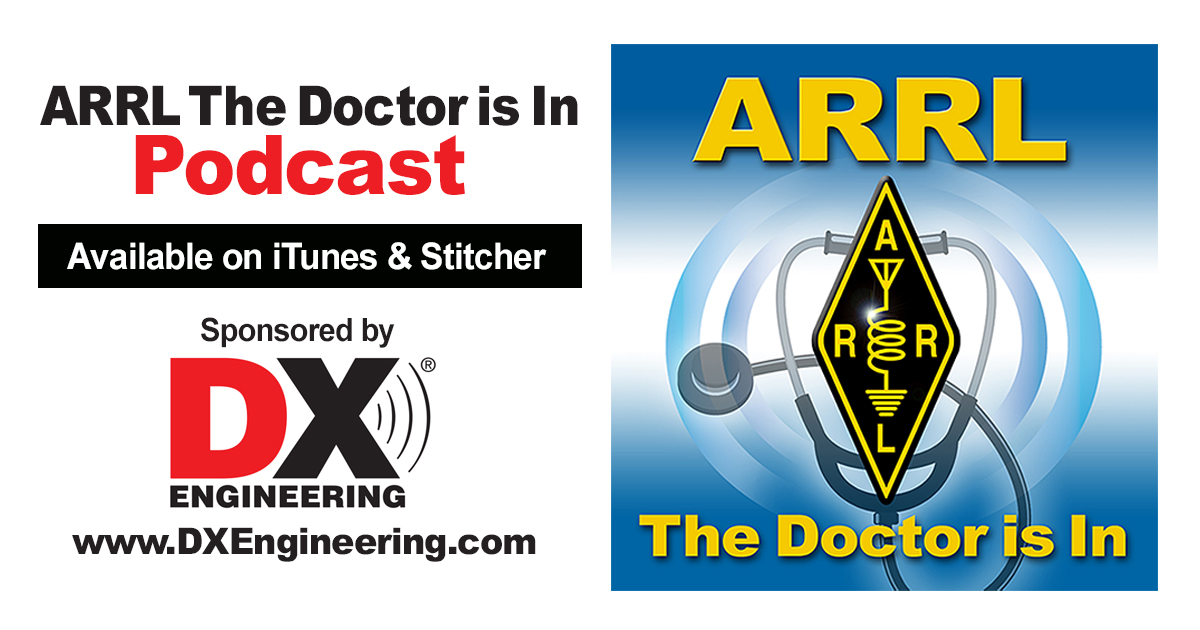 Every 2 weeks, your host, QST Editor-in-Chief Steve Ford, WB8IMY, and the Doctor himself, Joel Hallas, W1ZR, will discuss a broad range of technical topics. You can also e-mail your questions to
Every 2 weeks, your host, QST Editor-in-Chief Steve Ford, WB8IMY, and the Doctor himself, Joel Hallas, W1ZR, will discuss a broad range of technical topics. You can also e-mail your questions to 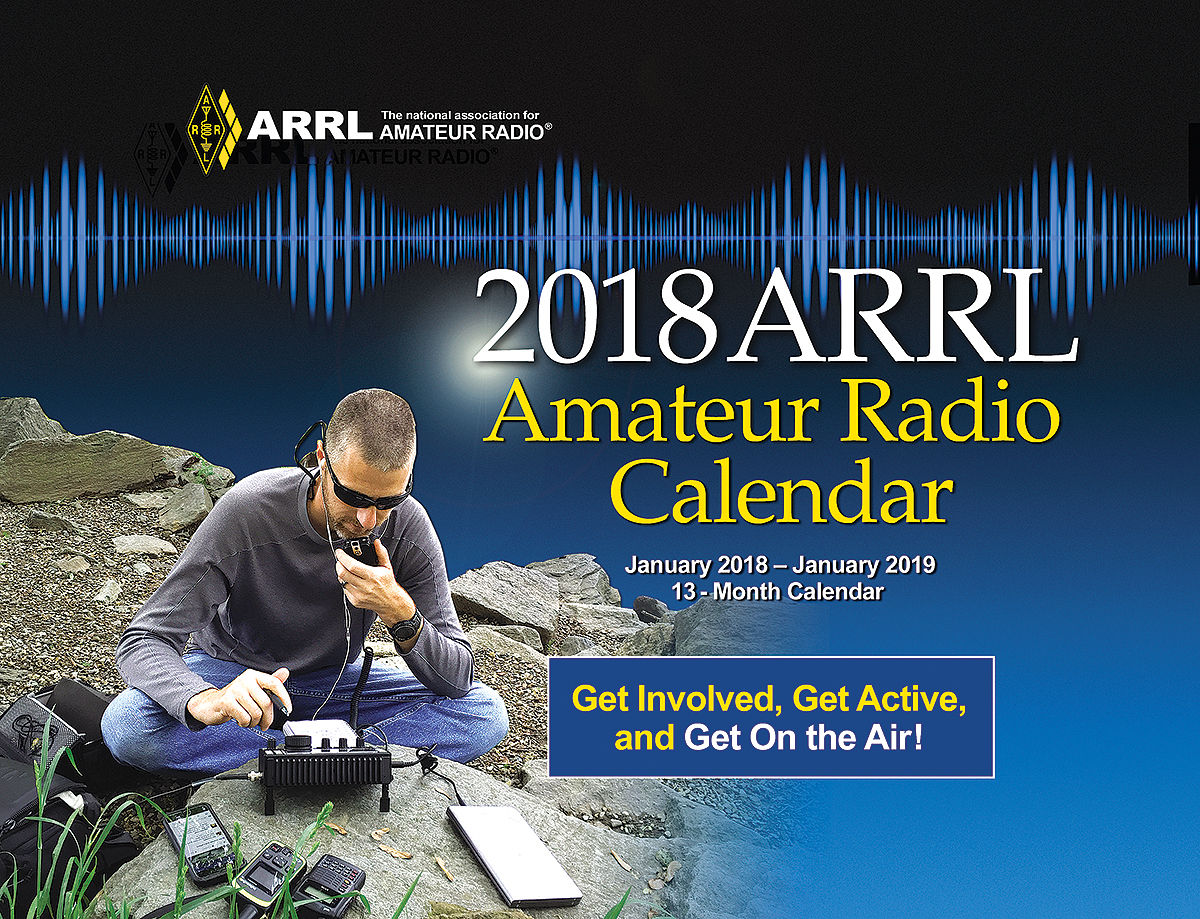
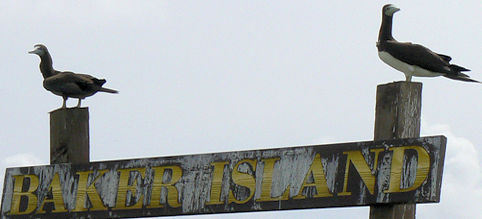 Greenbaum says a ship has been chartered -- the Nai'a from Fiji -- with arrival on the island during the third week of June 2018. The DXpeditioners will spend 12 days on the island, with 10 days set aside for radio operation, if plans hold.
Greenbaum says a ship has been chartered -- the Nai'a from Fiji -- with arrival on the island during the third week of June 2018. The DXpeditioners will spend 12 days on the island, with 10 days set aside for radio operation, if plans hold.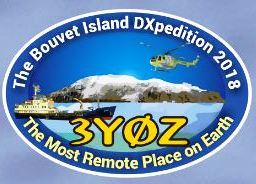 The
The 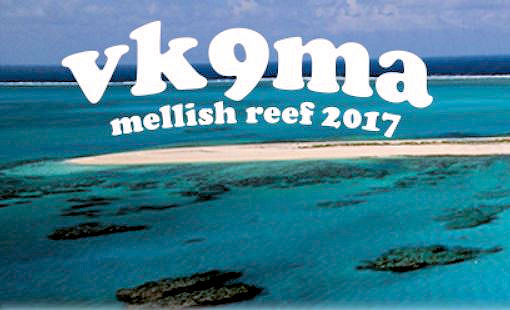 The Mellish Reef
The Mellish Reef 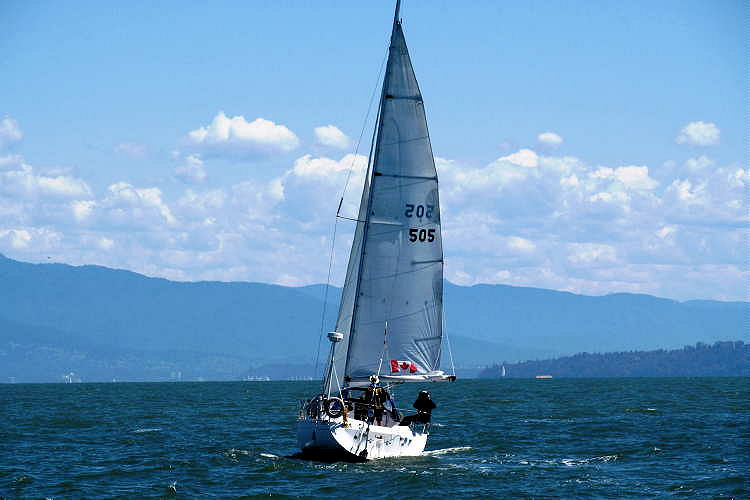
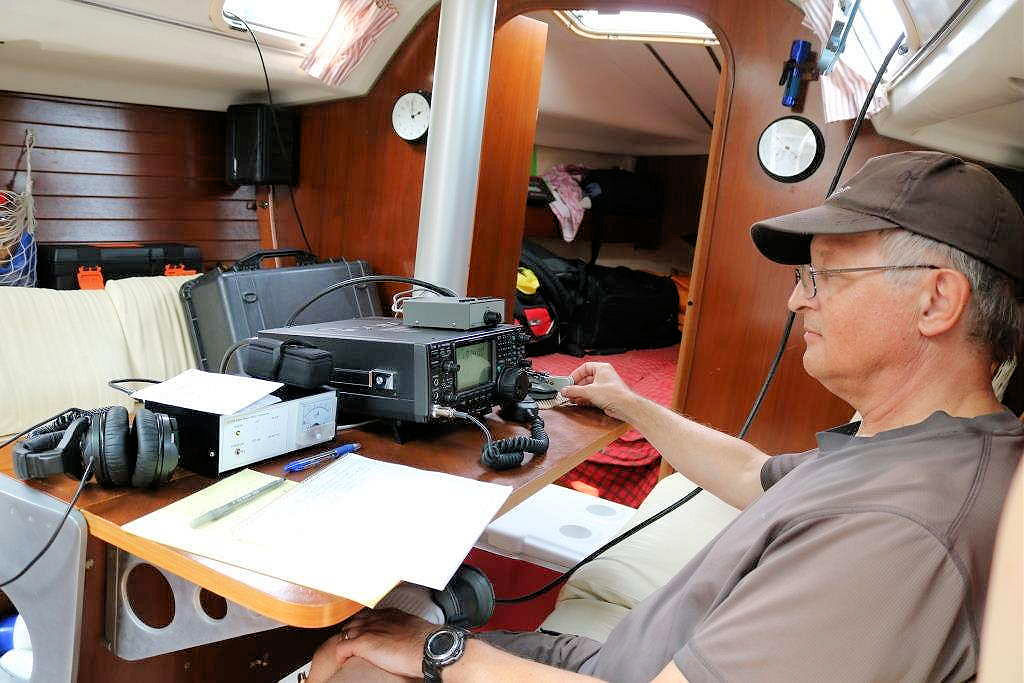
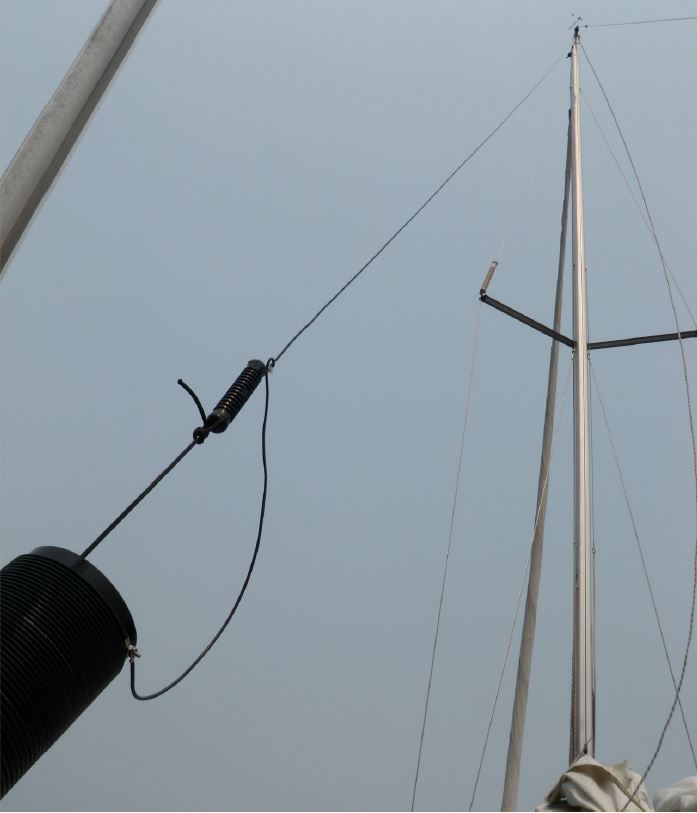
.jpg) Russian ISS crew members last week released three satellites carrying Amateur Radio payloads -- TOMSK TPU-120 (RS04S), with FM voice announcements on 437.025 MHz; Tanusha-SWSU-1 (RS-6S) with FM voice announcements and AX.25 9,600 bps packet on 437.050 MHz, and Tanusha-SWSU-2 (RS-7S) with FM voice announcements and on AX.25 9,600 bps packet on 437.050 MHz.
Russian ISS crew members last week released three satellites carrying Amateur Radio payloads -- TOMSK TPU-120 (RS04S), with FM voice announcements on 437.025 MHz; Tanusha-SWSU-1 (RS-6S) with FM voice announcements and AX.25 9,600 bps packet on 437.050 MHz, and Tanusha-SWSU-2 (RS-7S) with FM voice announcements and on AX.25 9,600 bps packet on 437.050 MHz.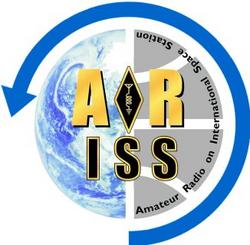 ARISS has advised that using the voice repeater for general contacts can interfere with this mission. ARISS Ham Project Coordinator Kenneth Ransom, N5VHO, noted that the FM cross band repeater has been a capability of the onboard Kenwood D-700 transceiver since it was first flown to the ISS in 2004.
ARISS has advised that using the voice repeater for general contacts can interfere with this mission. ARISS Ham Project Coordinator Kenneth Ransom, N5VHO, noted that the FM cross band repeater has been a capability of the onboard Kenwood D-700 transceiver since it was first flown to the ISS in 2004. Individuals or entities in these categories will be accepted for the use of a .radio domain:
Individuals or entities in these categories will be accepted for the use of a .radio domain: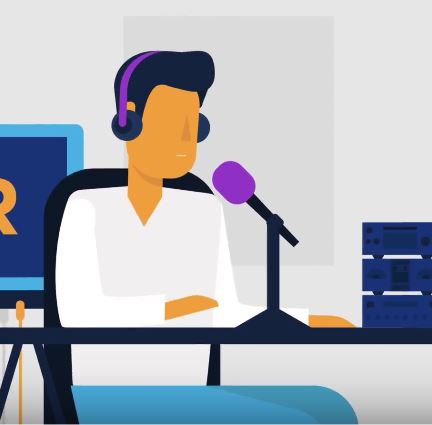 EBU's .radio TLD Manager Alain Artero suggested that those in the radio community may want to consider securing the integrity of their web presence by requesting appropriate .radio domains "for defensive reasons, initially."
EBU's .radio TLD Manager Alain Artero suggested that those in the radio community may want to consider securing the integrity of their web presence by requesting appropriate .radio domains "for defensive reasons, initially.".jpg) FCC's Updated Rules Governing Personal Radio Services Become Effective on September 28: The FCC recently adopted a comprehensive
FCC's Updated Rules Governing Personal Radio Services Become Effective on September 28: The FCC recently adopted a comprehensive .jpg) AMSAT Reports RadFxSat (Fox-1B) Completes P-POD Integration: AMSAT Vice President Engineering Jerry Buxton, N0JY, on August 15 delivered RadFxSat (Fox-1B) CubeSat, built in partnership with Vanderbilt University to Cal Poly University. RadFsSat/Fox-1B was successfully integrated into the P-POD CubeSat deployment container on August 16 along with its pod-mates, MakerSat-0 and EagleSat. Launch qualification vibration testing of the integrated P-POD was completed on August 17. The P-POD will next be mounted on the ULA Delta II rocket for launch no earlier than October 12. "Many thanks to the Cal Poly, Tyvak, and NASA personnel who we performed the integration with, to the MakerSat-0 and EagleSat team members, and to my west coast AMSAT CubeSat wing man Al Vasso for a successful and fun day!" Buxton said afterward. Uplink for Fox-1B is 435.250 MHz FM (67.0 Hz CTCSS); Downlink is 145.960 MHz FM (with subaudible slow speed telemetry data); 145.960 MHz 9600 baud FSK data. -- Thanks to AMSAT News Service via Jerry Buxton, N0JY
AMSAT Reports RadFxSat (Fox-1B) Completes P-POD Integration: AMSAT Vice President Engineering Jerry Buxton, N0JY, on August 15 delivered RadFxSat (Fox-1B) CubeSat, built in partnership with Vanderbilt University to Cal Poly University. RadFsSat/Fox-1B was successfully integrated into the P-POD CubeSat deployment container on August 16 along with its pod-mates, MakerSat-0 and EagleSat. Launch qualification vibration testing of the integrated P-POD was completed on August 17. The P-POD will next be mounted on the ULA Delta II rocket for launch no earlier than October 12. "Many thanks to the Cal Poly, Tyvak, and NASA personnel who we performed the integration with, to the MakerSat-0 and EagleSat team members, and to my west coast AMSAT CubeSat wing man Al Vasso for a successful and fun day!" Buxton said afterward. Uplink for Fox-1B is 435.250 MHz FM (67.0 Hz CTCSS); Downlink is 145.960 MHz FM (with subaudible slow speed telemetry data); 145.960 MHz 9600 baud FSK data. -- Thanks to AMSAT News Service via Jerry Buxton, N0JY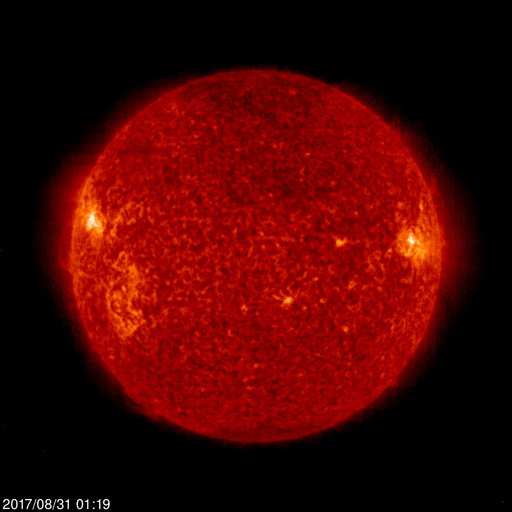 The latest forecast shows the planetary A index at 30 on August 31; 35, 20, 12, and 8 on September 1-4; 5 on September 5-7; 10 and 8 on September 8-9; 5 on September 10-12; 25 on September 13; 30 on September 14-15; 25 and 12 on September 16-17; 8 on September 18-19; 5 on September 20-22; 10 on September 23-24; 8, 15, 25, 18, 15, and 8 on September 25-30, and 5 on October 1-4.
The latest forecast shows the planetary A index at 30 on August 31; 35, 20, 12, and 8 on September 1-4; 5 on September 5-7; 10 and 8 on September 8-9; 5 on September 10-12; 25 on September 13; 30 on September 14-15; 25 and 12 on September 16-17; 8 on September 18-19; 5 on September 20-22; 10 on September 23-24; 8, 15, 25, 18, 15, and 8 on September 25-30, and 5 on October 1-4.







